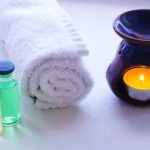Are you struggling to get a good night’s sleep? Look no further than the best aromatherapy oil blend for sleep. In this article, we will explore the importance of sleep and how aromatherapy oil blends can play a role in promoting better sleep patterns. Whether you’re dealing with insomnia or simply want to enhance your sleep quality, understanding the benefits of using essential oils can be a game-changer for your rest and relaxation.
Getting enough quality sleep is crucial for our overall well-being. Lack of sleep not only leaves us feeling tired and groggy but can also negatively impact our physical and mental health. This is where aromatherapy oil blends come in. By harnessing the power of essential oils, we can tap into their soothing and calming properties that promote relaxation and help induce a state of deep slumber.
The science behind aromatherapy is fascinating. Essential oils contain volatile compounds that have been shown to affect brain activity, mood, and even our physiological responses such as heart rate and blood pressure.
Through inhalation or topical application, these aromatic compounds stimulate our olfactory system, which in turn sends signals to the brain’s limbic system – the area responsible for emotions, memory, and behavior. By targeting this part of the brain, aromatherapy oil blends can effectively influence our sleep patterns and help us achieve a more restful night’s sleep.
In the following sections of this article, we will delve deeper into specific essential oils known for their sleep-enhancing properties. From lavender to chamomile, bergamot to ylang-ylang, each oil has its own unique qualities that contribute to a blissful slumber. We will also discuss expert tips on blending these oils together to create personalized fragrances that cater to your specific needs.
So if you’re ready to transform your sleep routine and experience the benefits of aromatherapy firsthand, continue reading as we guide you through the world of essential oils and their amazing potential for promoting better sleep.
Exploring the Science Behind Aromatherapy
Aromatherapy has been used for centuries to promote relaxation and improve sleep. But how exactly do essential oils influence our sleep patterns? In this section, we will explore the science behind aromatherapy and its effects on our ability to get a restful night’s sleep.
Effects on the Brain
One major way that essential oils influence sleep is through their effects on the brain. When inhaled, the molecules from these oils stimulate the olfactory receptors in our nose. These receptors send signals to the amygdala and hippocampus, areas of the brain responsible for emotion and memory.
Certain essential oils, such as lavender, chamomile, and bergamot, have been shown to activate these brain regions in a way that promotes relaxation and decreases anxiety. This can help calm racing thoughts and quiet the mind, making it easier to fall asleep and stay asleep throughout the night.
Hormonal Influence
In addition to affecting the brain, aromatherapy can also influence hormones in our body that regulate sleep. For example, certain essential oils like lavender have been found to increase levels of serotonin – a neurotransmitter that helps regulate mood and promotes feelings of well-being.
Serotonin is important for maintaining a healthy sleep-wake cycle because it is converted into melatonin – a hormone that plays a crucial role in regulating sleep. By increasing serotonin levels, essential oils can indirectly promote better sleep by supporting the natural production of melatonin in our bodies.
Reducing Stress and Anxiety
Stress and anxiety are major culprits when it comes to disrupted sleep patterns. Thankfully, many essential oils possess natural properties that can help reduce stress and anxiety levels.
For example, ylang ylang oil has been shown to have anxiolytic effects by lowering blood pressure and heart rate while promoting feelings of calmness. Vetiver oil is another powerful option, known for its ability to reduce anxiety and induce a sense of tranquility.
By incorporating these essential oils into your sleep routine, you can create a calming environment that promotes relaxation and reduces the stress and anxiety that may be interfering with your sleep.
Understanding the science behind aromatherapy and its effects on sleep patterns can empower you to make informed choices when selecting the best essential oils for your bedtime routine. In the next section, we will provide a comprehensive guide to different aromatherapy oils specifically chosen for their sleep-enhancing properties.
Finding Your Perfect Slumber Scent
A good night’s sleep is essential for overall health and well-being. If you’re struggling to get a restful sleep, incorporating aromatherapy oils into your bedtime routine might be just what you need. Aromatherapy has been used for centuries to promote relaxation, reduce stress, and improve sleep quality. In this comprehensive guide, we will explore various aromatherapy oils that can help you achieve a blissful slumber.
When it comes to finding the perfect scent for your sleep routine, lavender is often hailed as the ultimate soothing oil. Lavender essential oil has sedative properties that can help calm the mind and body. Its relaxing aroma can ease tension, reduce anxiety, and promote a sense of tranquility, making it an ideal choice for those struggling with insomnia or restlessness.
Another popular essential oil for promoting deeper sleep is chamomile. Known for its calming and soothing properties, chamomile essential oil helps unwind and relax both the mind and body. It can alleviate feelings of anxiety and promote a sense of peace, allowing you to drift off into a more restful slumber.
If you struggle with mood swings or suffer from insomnia, bergamot essential oil might be the perfect addition to your bedtime routine. This citrusy oil is known for its uplifting properties that can boost mood and lower stress levels. By reducing cortisol levels in the body, bergamot oil helps induce relaxation and create an environment conducive to sleep.
To enhance relaxation and banish restlessness at night, consider using ylang ylang essential oil. This floral-scented oil has sedative effects that can help calm an overactive mind and promote deep sleep. Ylang ylang also has antidepressant properties that aid in relieving feelings of sadness or anxiety that may interfere with quality sleep.
For those battling anxiety or racing thoughts at bedtime, vetiver essential oil can be a game-changer. It has grounding and calming effects that promote relaxation and reduce anxiety levels. Vetiver oil helps instill a sense of tranquility and can be particularly beneficial for individuals with insomnia or restless leg syndrome.
Remember, finding the perfect aromatherapy oil blend for sleep is all about personal preference. Experiment with different oils to discover what works best for you. You can also try blending two or more oils together to create a customized sleep blend. In our next section, we will provide expert tips and recipes for creating the perfect aromatherapy oil blend for optimal sleep results.
- Lavender: Soothes the mind and body, reduces anxiety, promotes tranquility
- Chamomile: Calms and relaxes the mind and body, alleviates anxiety
- Bergamot: Uplifts mood, reduces stress levels, creates a peaceful environment
- Ylang Ylang: Enhances relaxation, banishes restlessness, aids in deep sleep
- Vetiver: Induces tranquility, combats anxiety and racing thoughts
Lavender
Lavender is one of the most widely recognized and beloved essential oils when it comes to promoting sleep. Its calming and soothing properties make it the ultimate choice for those seeking a restful night’s sleep. Lavender has been used for centuries as a natural remedy for insomnia, anxiety, and stress.
The scent of lavender oil has been shown to have a sedative effect on the body, helping to lower heart rate and blood pressure, induce relaxation, and promote sleep. Inhaling lavender oil can also help to reduce feelings of restlessness and promote a sense of tranquility.
There are several ways to incorporate lavender oil into your bedtime routine. One popular method is to use a diffuser or vaporizer to fill your bedroom with the relaxing scent of lavender before you go to bed.
You can also add a few drops of lavender oil to your pillow or bedding for an extra calming effect. Another option is to mix lavender oil with a carrier oil such as coconut or jojoba oil and use it for a soothing massage before bed.
Here are some other benefits of using lavender oil for sleep:
- Reduces anxiety: Lavender has been found to ease symptoms of anxiety and promote relaxation, which can help calm the mind before sleep.
- Improves sleep quality: Studies have shown that using lavender oil before bedtime can improve both sleep quality and duration, leading to more restorative sleep.
- Relieves insomnia: The sedative properties of lavender oil make it an effective remedy for insomnia, helping individuals fall asleep faster and stay asleep throughout the night.
Chamomile
For centuries, chamomile has been revered for its calming properties and its ability to promote restful sleep. This gentle and soothing herb is a popular choice in aromatherapy oil blends for sleep due to its natural sedative effects. Chamomile essential oil contains compounds that work on the central nervous system to relax the mind and body, making it an excellent choice for those experiencing insomnia or difficulty falling asleep.
One of the main compounds found in chamomile essential oil is called apigenin, which acts as a mild tranquilizer. It binds to specific receptors in the brain that help reduce anxiety and promote relaxation. The aroma of chamomile also stimulates the production of serotonin and melatonin, two hormones that play a crucial role in regulating sleep-wake cycles.
To incorporate chamomile into your bedtime routine, you can create your own aromatherapy oil blend by combining chamomile with other relaxing oils like lavender or bergamot. Alternatively, you can use chamomile essential oil on its own by adding a few drops to a diffuser or applying it topically by diluting it with a carrier oil and massaging it onto your temples or wrists before bed.
In addition to its sedative effects, chamomile also has anti-inflammatory properties that can help soothe any bodily discomfort that may be interfering with your sleep. Whether you prefer using chamomile essential oil on its own or as part of a blend, incorporating this calming oil into your sleep routine can help unwind your mind, calm racing thoughts, and promote deeper, more restorative sleep.
Bergamot
Bergamot essential oil is known for its uplifting and calming properties, making it an excellent choice to enhance your mood and promote better sleep. Derived from the peel of the bergamot orange fruit, this citrus-based oil has a refreshing and citrusy scent that is both invigorating and soothing.
In terms of promoting sleep, bergamot essential oil can help combat insomnia by reducing feelings of anxiety and stress. The oil acts as a natural sedative, calming the mind and creating a sense of relaxation that aids in falling asleep faster. Its pleasant aroma also helps to create a peaceful environment, making it easier to slip into a deep, restful slumber.
One of the main components in bergamot essential oil is linalool, which has been shown to have sedative effects on the central nervous system. Linalool helps to promote sleep by reducing heart rate and blood pressure, as well as lowering levels of stress hormones such as cortisol. These physiological changes contribute to a more relaxed state that is conducive to quality sleep.
To incorporate bergamot essential oil into your bedtime routine, there are several methods you can try:
- Diffusing: Add a few drops of bergamot oil to a diffuser before bedtime. As the aroma fills the room, it will create a relaxing atmosphere that helps prepare your body and mind for sleep.
- Bathing: Mix a few drops of bergamot essential oil with Epsom salts or carrier oils like coconut or jojoba oil, then add it to your warm bathwater. Soak in the fragrant bath for at least 20 minutes before bed to enjoy its calming effects.
- Massage: Dilute bergamot essential oil with a carrier oil such as almond or grapeseed oil, then gently massage onto your temples, neck, and shoulders. The soothing sensation combined with the uplifting aroma will promote relaxation and help you unwind for a peaceful slumber.
It is important to note that bergamot essential oil is photosensitive, meaning it can increase your skin’s sensitivity to the sun. To avoid any potential adverse effects, it is recommended to use bergamot oil at least 12 hours before exposure to direct sunlight or use a sunscreen if going outside during daylight hours.
Ylang Ylang
When it comes to finding the perfect aromatherapy oil blend for sleep, ylang ylang is a standout choice. Known for its exotic and sweet floral scent, ylang ylang essential oil has been used for centuries to promote relaxation and induce a deep state of calm.
One of the main benefits of ylang ylang is its ability to enhance relaxation and banish restlessness. This powerful oil has natural sedative properties that can help calm both the mind and body, making it an ideal choice for those who struggle with insomnia or difficulty falling asleep. When inhaled, the aroma of ylang ylang triggers the release of neurotransmitters in the brain that promote feelings of serenity and tranquility, setting the stage for a peaceful night’s sleep.
In addition to its sleep-inducing effects, ylang ylang also has mood-enhancing properties that can uplift your spirits and reduce anxiety. By promoting a sense of well-being and contentment, this oil can help alleviate any emotional tension or stress that may be keeping you awake at night. Its pleasant scent can also create a soothing environment, helping to create a calming atmosphere conducive to sleep.
To enjoy the benefits of ylang ylang essential oil for sleep, there are various methods of use. You can add a few drops to your diffuser before bed or use it in a bedtime bath by mixing a few drops with a carrier oil such as jojoba or almond oil. Another popular way to harness its effects is through massage – simply dilute a few drops in a carrier oil and gently massage onto your skin before going to bed.
Overall, incorporating ylang ylang into your aromatherapy routine can greatly enhance relaxation and banish restlessness for sound sleep. Its calming properties make it an excellent choice for those seeking natural remedies to improve their quality of sleep. By creating a serene and tranquil environment, ylang ylang can help you achieve the restorative slumber you’ve been longing for.
Vetiver
Vetiver oil is derived from the roots of the vetiver plant, a tropical grass native to India. It has been used for centuries in traditional medicine and aromatherapy practices to promote relaxation and alleviate stress and anxiety. Vetiver oil is known for its deep, earthy scent that is both grounding and calming, making it an ideal choice for improving sleep quality.
The soothing properties of vetiver oil can help calm an overactive mind and reduce feelings of anxiety, allowing you to unwind and prepare for a restful night’s sleep. Research has shown that vetiver oil can even have sedative effects, promoting relaxation and inducing sleepiness. Its ability to combat anxiety can also be beneficial for individuals who experience nighttime restlessness or insomnia.
In addition to its calming effects on the mind, vetiver oil has also been found to have physical benefits that contribute to better sleep. It possesses anti-inflammatory properties that can help relax tense muscles and reduce pain, making it particularly helpful for individuals who struggle with muscle soreness or discomfort before bed.
To incorporate vetiver oil into your sleep routine, there are several methods you can try. Diffusing vetiver oil in your bedroom before bedtime can create a relaxing atmosphere and fill the space with its tranquil aroma. You can also add a few drops of vetiver oil to a warm bath or mix it with a carrier oil for massage therapy.
When using any essential oils, including vetiver oil, it is important to follow safety precautions. Essential oils should always be diluted properly before applying them directly to the skin, as they are highly concentrated substances that may cause irritation or sensitization. It is recommended to do a patch test on a small area of skin before using vetiver oil topically.
Overall, vetiver oil offers numerous benefits for those seeking a peaceful sleep environment. Its ability to induce tranquility and combat anxiety can help improve sleep quality and create a more restful slumber.
The Power of Blending
In the quest for a restful night’s sleep, the power of blending different aromatherapy oils cannot be underestimated. By combining various essential oils, you can create a custom blend that synergistically enhances relaxation and promotes deep sleep. This section will delve into expert tips and recipes for creating the perfect aromatherapy oil blend to help you achieve a blissful slumber.
- Consider Complementary Scents: When blending essential oils for sleep, it is important to choose scents that complement each other and work together harmoniously. Some popular combinations include lavender and chamomile, bergamot and ylang ylang, or vetiver and cedarwood. Experiment with different combinations to find the scent profile that resonates with you.
- Blending Ratios: When combining essential oils, it is important to consider their individual strengths and fragrance intensity. Start with a 2:1 ratio, using two drops of the dominant oil and one drop of the secondary oil. You can adjust the ratio based on personal preference and desired scent intensity. Keep in mind that some oils have a stronger aroma than others, so always start with a lower concentration and gradually increase if needed.
- Serene Slumber Blend: 3 drops lavender, 2 drops chamomile
- Dreamy Delight Blend: 2 drops bergamot, 2 drops ylang ylang
- Tranquil Oasis Blend: 3 drops vetiver, 1 drop cedarwood Remember to blend the oils in a dark glass bottle and let them sit for at least 24 hours before use to allow the scents to combine fully. These blends can be used in diffusers, added to bathwater, or diluted in carrier oils for massage.
| Essential Oils | Aromatherapy Benefits |
|---|---|
| Lavender | Soothing, calming, promotes relaxation |
| Chamomile | Calming, reduces anxiety and insomnia |
| Bergamot | Mood-lifting, relieves stress and tension |
| Ylang Ylang | Promotes relaxation, reduces restlessness |
| Vetiver | Sedative effect, induces tranquility |
3. Expert-Recommended Recipes: Here are some expert-recommended aromatherapy oil blend recipes to aid in sleep:
How to Use Aromatherapy Oils for Optimal Results
Diffusers: Enhancing the Atmosphere for Sleep
One of the most popular and convenient ways to use aromatherapy oils for sleep is through diffusers. Diffusers are devices that disperse essential oils into the air, creating a relaxing and soothing atmosphere in your bedroom. There are various types of diffusers available on the market, including ultrasonic diffusers, nebulizing diffusers, and heat diffusion devices.
Ultrasonic diffusers use electronic frequencies to create vibrations that break down the essential oil particles into a fine mist, which is then dispersed into the air. This type of diffuser also functions as a humidifier, adding moisture to the room.
Nebulizing diffusers work by using pressurized air to atomize the essential oil, releasing it into the environment as a concentrated mist. Heat diffusion devices use heat to evaporate the oils, but they may alter the therapeutic properties of certain oils due to their high temperatures.
To use a diffuser for optimal results, follow these steps:
- Fill your diffuser with water according to its instructions.
- Add 5-10 drops of your chosen aromatherapy oil blend for sleep.
- Place the diffuser in your bedroom and turn it on.
- Enjoy the soothing aroma as it fills the room.
Bathing: Relieving Stress and Preparing for Sleep
Another effective method of using aromatherapy oils for sleep is through bathing. Taking a warm bath infused with essential oils can help relieve stress, relax muscles, and prepare both your body and mind for a restful night’s sleep.
To create an aromatic bath experience:
- Fill your bathtub with warm water.
- Add 5-10 drops of your preferred sleep-inducing aromatherapy oil blend directly into the water.
- Swirl the water gently with your hand to disperse the oils.
- Step into the bath and immerse yourself for at least 15 minutes.
- Take slow, deep breaths to inhale the scent of the oils and allow them to work their magic on your body and mind.
Remember, essential oils do not mix with water alone, so it is crucial to add a dispersing agent like bath salts or a carrier oil (such as jojoba or almond oil) to ensure proper blending and prevent any skin irritation.
Massage: Unwinding both Body and Mind
Massage with aromatherapy oils can be an incredibly effective way to promote relaxation and better sleep. The combination of touch and scent helps release tension from your muscles and soothes your senses, creating a harmonious state for sleep.
To give yourself a relaxing massage:
- Dilute your chosen aromatherapy oil blend by mixing 10-12 drops of the oil with 1 ounce of carrier oil (such as sweet almond or coconut oil).
- Apply a small amount of the diluted blend onto your palms, and rub them together to warm up the oil.
- Massage your body using gentle, circular motions in areas such as your neck, shoulders, back, temples, or feet.
- Breathe deeply throughout the massage to fully experience the calming effects of both touch and scent.
It is important to note that if you are receiving a massage from someone else, make sure they are knowledgeable about aromatherapy oils. Some essential oils may cause sensitivities or allergic reactions in certain individuals, so always perform a patch test before applying directly to the skin.
Safety Precautions and Recommendations
Understanding the Importance of Safety in Aromatherapy
When using aromatherapy oils for sleep, it is crucial to prioritize safety. Although essential oils are natural substances, they are highly concentrated and should be used with caution. This section will outline important safety precautions and recommendations to ensure a safe and enjoyable aromatherapy experience for sleep.
Patch Testing: A Vital Step
Before incorporating any new aromatherapy oil into your sleep routine, it is recommended to conduct a patch test. To do this, dilute a small amount of the oil in a carrier oil, such as jojoba or coconut oil, and apply a small patch on your forearm. Wait 24 hours to check for any adverse reactions such as skin irritation or redness. If no reaction occurs, the oil should be safe for use.
It’s worth noting that different individuals may have varying sensitivities to essential oils, so patch testing is essential even if you have used similar oils before without issue.
Dilution Guidelines: Protecting Your Skin
To safeguard against skin irritation and sensitivity, it is crucial to properly dilute essential oils before direct application. The general rule of thumb is to dilute essential oils with carrier oils at a ratio of 2-5%. For example, add 12-30 drops of essential oil per ounce (30 mL) of carrier oil.
This dilution guideline ensures that the potency of the essential oil is reduced without compromising its effectiveness. Additionally, certain individuals may require further dilution due to increased sensitivity or specific health conditions. It’s recommended to consult with a certified aromatherapist or healthcare professional for personalized guidance.
Diffusing Safely: Ensuring Proper Air Circulation
Using an aromatherapy diffuser can create a relaxing atmosphere conducive to sleep. However, it’s important to ensure proper air circulation in the room. Avoid using a diffuser in a small, poorly ventilated space, as this can lead to an excessive concentration of essential oils in the air.
To diffuse safely, follow the manufacturer’s instructions for your specific diffuser and use it intermittently rather than constantly. This will allow your body to process the essential oils effectively without overwhelming your olfactory system or respiratory system.
By adhering to these safety precautions and recommendations, you can enjoy the benefits of aromatherapy oils for sleep while minimizing the risks associated with their usage.
Conclusion
In conclusion, incorporating aromatherapy oil blends into your sleep routine can greatly improve the quality of your rest and promote a more restorative slumber. The science behind aromatherapy reveals that certain essential oils have the ability to influence sleep patterns by soothing the mind, enhancing relaxation, and combating anxiety. Lavender, chamomile, bergamot, ylang ylang, and vetiver are all excellent options for creating a calming and sleep-inducing environment.
Creating the perfect aromatherapy oil blend for sleep involves experimenting with different combinations and ratios of oils until you find what works best for you. Expert tips and recipes can provide guidance in this process, but ultimately it is important to listen to your body and adjust accordingly. Whether using a diffuser, incorporating oils into a bath or massage, or simply applying them topically on pulse points, there are various methods for using aromatherapy oils to optimize results.
However, it is crucial to prioritize safety when using aromatherapy oils. Always dilute essential oils properly before use, as direct application can cause skin irritation or other adverse reactions. It is also important to consult with a healthcare professional if you have any underlying health conditions or are pregnant.
Overall, with proper knowledge and precautions in place, incorporating the best aromatherapy oil blend for sleep can transform your sleep routine and lead to a more restful and rejuvenating slumber. Take the time to explore different essential oils and find the scents that resonate with you personally for optimal results. Sweet dreams await.
Frequently Asked Questions
What is the best essential oil combo for sleep?
One of the best essential oil combinations for sleep is a blend of lavender and chamomile. Lavender has long been known for its calming properties and ability to promote relaxation, while chamomile also has soothing effects and can help to reduce anxiety.
Together, these oils create a powerful combination that can help to promote a restful night’s sleep. Simply add a few drops of each oil to a diffuser or mix them with a carrier oil for topical use, such as in a massage oil or bath blend.
What essential oil blend for sleep insomnia?
When dealing with sleep insomnia, a recommended essential oil blend includes a combination of bergamot, frankincense, and vetiver. Bergamot is known for its uplifting and mood-regulating properties, helping to calm the mind and reduce stress levels that may be contributing to insomnia. Frankincense has been used for centuries in spiritual rituals and is believed to have sedative effects that aid in promoting relaxation.
Vetiver helps to balance emotions and ease racing thoughts, making it an excellent choice for those struggling with insomnia. Combine a few drops of each oil in a diffuser or dilute them in a carrier oil for topical use before bedtime.
What can I mix with lavender essential oil for sleep?
There are several options that can be mixed with lavender essential oil to enhance its effectiveness for sleep. One popular choice is roman chamomile essential oil, as mentioned earlier, due to its calming properties that complement lavender’s soothing effects. Another option is ylang-ylang essential oil, which has been traditionally used as a natural remedy for insomnia and is known for its ability to reduce stress and promote relaxation.
Additionally, cedarwood essential oil can be mixed with lavender to create a grounding effect that aids in inducing sleepiness. Experiment with different combinations and find the one that works best for you by adding a few drops of your chosen oil(s) to lavender essential oil either in a diffuser or when creating personal care products like lotions or bath salts.

Are you looking for a natural way to improve your health and wellbeing?
If so, aromatherapy may be the answer for you.





